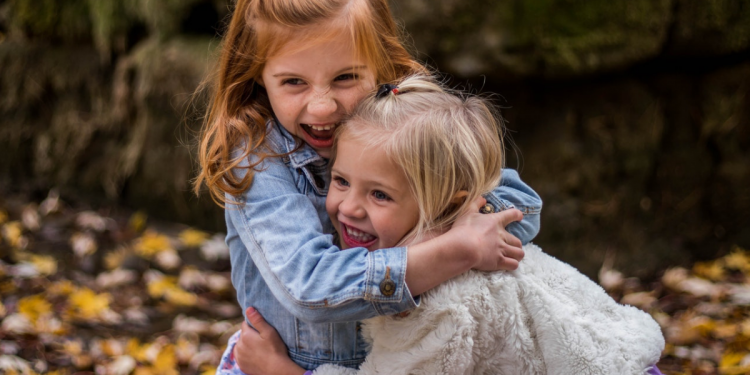If you have ever found yourself standing in the middle of drop-off at a new school, blinking away tears while a sea of strangers swallows up your children, wishing you could stop putting your kids through this and just let them settle in one place for once…
…do not despair.
While we might not have roots, and while we might not give our children roots, we do have something different.
What is it? Let me explain…
What is our ultimate goal for our kids?
Recently, while reading Senator Ben Sasse’s The Vanishing American Adult, I stopped and pondered his suggestion that our society is raising a generation that might not be “fully equipped to confront the stark challenges ahead of them.” Basically, Sasse is worried that we’re raising kids who will not be prepared for adulthood.
My antennae zoomed up as I read on, contemplating my own kids, their peers and our military lifestyle.
Often, as military parents, we worry about what we are not providing our kids: stability, continuity and those thick, long roots. We worry about how the military lifestyle is affecting our kids now, in the present: are they scared? Nervous? Shy? Sad? Lost? Lonely? Anxious?
How is deployment affecting them? Is it interfering with their learning, their happiness, their ability to socialize?
But then I thought of what we are giving them, and deep down I believe it has the power to prepare them for the long-term in a truly awesome way.
As our children navigate the challenges and joys, the transitions and calm of military life, they grow vines that are wide and long. These vines grow across the country and around the world. They wind through friendships and communities. They guide our kids through unfamiliar territory and fortify them in the face of challenge.
They are what distinguish our kids. They are what prepare them for adulthood. And here’s why I think so…
1. Military kids learn about themselves by experiencing diversity.
I once read a meme that said something like, “Civilian kids see difference; Military kids see diversity.” I love that. It’s a beautiful way to think of the gift our children have to grow up in several different parts of the country, and perhaps the world.
Our children’s vines extend in and about unique people and places, helping them learn about the complexities of our nation and our world. Our kids don’t travel to foreign places as consumer tourists, passively observing popular landmarks, literally watching the world go by.
No, our kids actively participate in the life of different communities and cultures.
Whether it’s in a small American town or a vibrant European city, our children learn to adapt to social customs and appreciate the nuances of the locale’s lifestyle. In the process, they develop a sense of their own capabilities, as they overcome language barriers, navigate unfamiliar places, and understand different points of view. Our kids gain self-knowledge and experience self-reliance by living a life that requires them to step outside their comfort zone on a regular basis.
2. Military kids learn early networking skills.
With every transition, our kids become accustomed to the process of getting to know people in their new surroundings. Whether they’re initiating conversations, joining kids on the playground or accepting an invitation to a new friend’s house, our kids are developing excellent communication skills.
Regardless of their personality – shy or outgoing, studious or athletic – they are getting practice in interacting with people from a variety of backgrounds, which will serve them well as adults. As they experience transitions, our kids learn not only how to socialize with friends, but how to form connections in a new place. They seek out clubs, teams and other activities where like-minded peers will gather.
In a way, this is actually giving them experience in early networking skills, challenging them to confront newness, identify what resources they need and reach out to the people who they believe can help them. Someday, when we are far away and they are on their own, they will use exactly the same skills to forge their own path.









